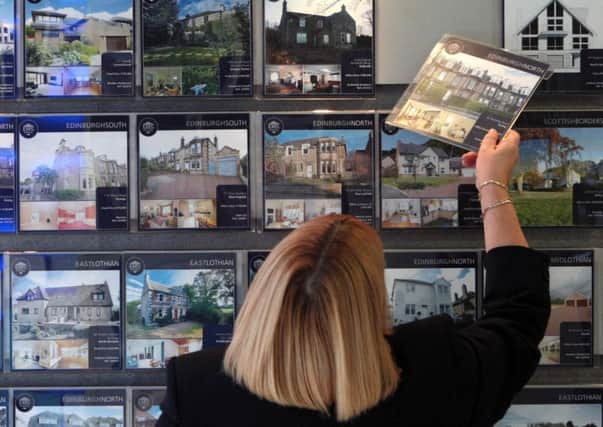UK ‘heads for sustainable recovery’


A survey by polling company YouGov concluded that fewer Britons are expecting house prices to rise, as they prepare for the prospect of interest rates going up. The YouGov index in July was unchanged from June, ending 18 months of continuous improvement, according to figures compiled for economics consultancy CEBR.
“The surge in consumer confidence over the past 18 months has largely been built on homeowners’ faith in property prices increasing,” said YouGov researcher Stephen Harmston.
Advertisement
Hide AdAdvertisement
Hide Ad“Now we are seeing a distinct cooling off in these expectations and, as a result, overall consumer confidence has stalled,” he said.
For the second month in a row, the number of homeowners who expect the value of their houses to increase over the next year fell, the survey showed. This is the first two-month decline in about two years.
Households’ assessment of their own finances continued to improve, however.
“With some heat coming out of the housing market, business investment picking up and household finances slowly improving, the economy could be readying itself for slower, but more sustainable, growth,” said CEBR managing economist Scott Corfe. The Bank of England said on Wednesday that there were tentative signs that the economy was starting to slow slightly, which is in line with its forecasts for the second half of 2014.
Advertisement
Hide AdAdvertisement
Hide AdIain Clacher, an associate professor at Leeds University Business School, said: “The fact that consumer confidence has fallen for the first time since December 2012 is not a surprise, nor is it necessarily a need for concern.
“It is only one measure of confidence, and it is based on house prices. For many people, house prices are a barometer of confidence. However, the Government has been stoking house prices with the Help to Buy Scheme which is available for first time buyers on houses up to a value of £600,000.
“This has clearly given a boost to house prices and much of the growth has been in London and the South East.”
Mr Clacher said that factors such as the prospect of rising interest rates, would make consumers reappraise their views on property. However, data also indicates that many consumers feel their personal finances are improving.
Advertisement
Hide AdAdvertisement
Hide AdHe added: “There are, however, many who are struggling and experiencing a cost of living crisis. This remains the biggest challenge for the Government; to make sure that any recovery is felt across the economy and not just for a select few or a number of regions.”
Professor Christopher Bovis, of Hull University Business School, said consumer confidence remained one of the most credible indicators of economic performance.
He added: “The paradox of house prices in the UK could create enormous pressures for the Bank of England. House prices in the south of the UK, and in particular in Greater London, are beyond comparison with any other region of the country. The lack of new-build housing and the relative lack of affordable housing across the UK only goes to augment the problem. The Bank of England heralded the rise of interest rates in the near future. This development has filtered into prospective consumer behaviour and eased-off demand for houses and subsequently tapered their price-increase. The last outcome has acted as a muffler to consumer confidence and a realisation that house prices can go down as well as up.”